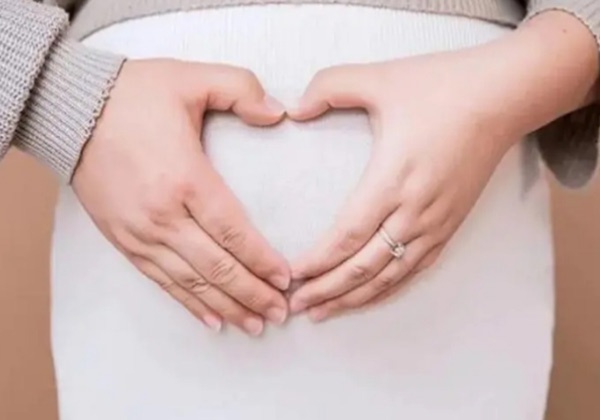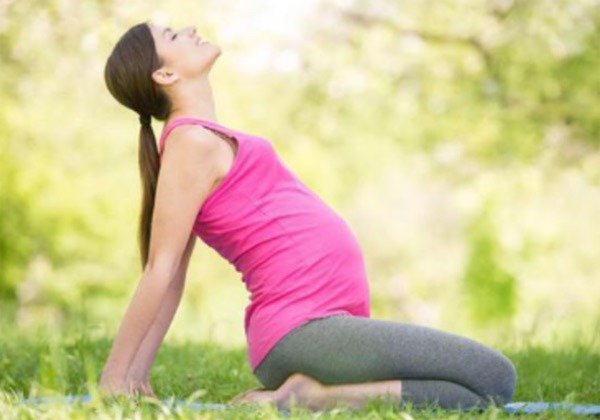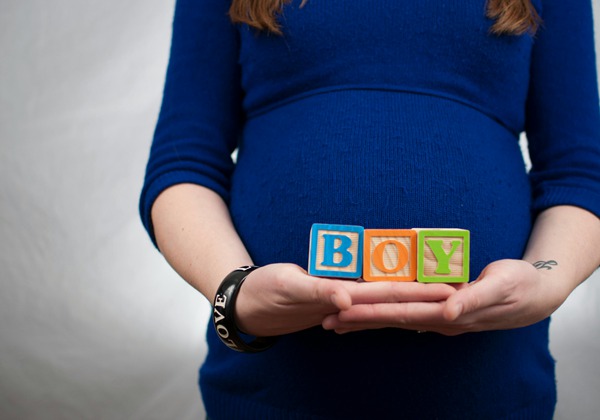胚胎移植后是否需要卧床休息?

胚胎移植是体外受精(IVF)过程中的关键步骤,许多人误以为移植后需要长时间卧床休息以提高成功率。然而,科学研究表明,胚胎移植后立即活动并不会影响胚胎着床,子宫环境已为胚胎提供了足够支持。事实上,过度卧床可能降低妊娠成功率,增加血栓风险和心理压力。医生建议短暂休息10-20分钟后即可恢复正常活动,适度运动如散步甚至更有助于促进血液循环和胚胎着床。本文将详细解析胚胎移植后的科学护理方法,帮助您更好地迎接好孕。
胚胎移植的过程是什么?
胚胎移植是体外受精(IVF)的关键步骤。在此过程中,医生通过细管将一个或多个实验室培养的胚胎放入子宫内,目的是让胚胎附着在子宫壁上并发育成胎儿,这一过程被称为着床。
很多人认为,胚胎移植后需要长时间卧床休息以防止胚胎“掉出”,但科学研究表明,移植后立即活动并不会影响胚胎位置。事实上,适当活动有助于促进血液循环,对胚胎着床更有利。因此,与其过度担忧卧床时间,不如关注如何保持身体和心理的放松状态,从而为胚胎着床创造最佳条件。
为什么人们认为卧床休息有帮助?
很多人相信保持静止可以让胚胎更稳定地停留在子宫内,担心活动会导致胚胎“掉出”。这种观点源于对胚胎着床过程的误解。人们常常认为,胚胎像一个小球一样需要“固定”在某个位置,而任何移动都可能导致其脱落或移位。然而,科学研究给出了不同的答案。
- 卧床休息的误区:有人认为卧床可以保护胚胎不脱落。
- 事实:胚胎已经位于子宫内部,正常活动不会导致其移位。
事实上,胚胎在移植后会自然附着在子宫内膜上,子宫环境提供了足够的支持来防止胚胎“掉落”。此外,现代医学研究表明,过度卧床不仅没有益处,反而可能带来副作用。例如,长期卧床可能导致血液循环减慢,增加血栓风险,甚至影响消化功能。过去,医生确实推荐卧床休息,但现在研究表明,过度卧床反而可能降低怀孕成功率。因此,适当的活动不仅不会危害胚胎,还能促进血液循环,有助于胚胎的生长发育。
科学研究对卧床休息的看法
短期休息是可以的
医生通常建议在胚胎移植后休息10到20分钟。这段时间可以让胚胎初步适应子宫环境,并帮助患者缓解紧张情绪。然而,研究显示,这种短期休息并不会显著提高妊娠成功率,但也不会带来负面影响,因此被认为是安全且合理的做法。
长期卧床降低成功率
研究表明,超过20分钟的卧床休息会降低怀孕几率。一项研究发现,卧床超过20分钟会使临床妊娠率下降15%。这可能是因为长期卧床打乱了日常生活规律,增加了心理负担,甚至影响神经内分泌调节,从而对妊娠结局产生不利影响。
为什么过多休息有害?
- 血栓风险:长时间不动可能导致血栓形成,尤其是在下肢静脉中,这对健康构成潜在威胁。
- 心理压力:被迫卧床可能让患者感到焦虑和不安,而心理压力已被证实会影响妊娠成功率。此外,长期卧床还可能导致身体不适,进一步加重心理负担。
综上所述,胚胎移植后适度活动更为科学合理,无需过度强调卧床休息。
专家建议是什么?
医生和生育专家一致认为:不需要长期卧床休息。以下是他们的具体建议:
- 短暂休息:胚胎移植后,建议患者躺下休息10到20分钟即可。这段时间的休息主要是为了让子宫处于放松状态,帮助身体适应胚胎的植入过程。但需要注意的是,长时间卧床不仅无益,反而可能增加心理压力,影响妊娠成功率。
- 避免重物:移植后的几天内,尽量不要提重物或进行需要腹部用力的活动。提重物会增加腹压,可能导致子宫收缩,甚至引发出血,从而影响胚胎着床。
- 保持适度活动:轻度活动如散步是有益的。研究表明,移植后马上起身活动与长时间卧床相比,并不会对妊娠结局产生明显差异。适度活动还可以促进血液循环,有助于胚胎着床和健康发育。
专家还表示,只要工作不是过于紧张或体力消耗大,恢复正常生活是可以的。总之,保持轻松心态和适度活动比长期卧床更为重要。
胚胎移植后的注意事项
应该做的
- 短暂休息:手术后躺下10到20分钟有助于胚胎初步适应子宫环境,但无需长时间卧床,因为子宫是一个闭合的腔隙,胚胎不会因正常活动而掉出。
- 保持水分:多喝水可以促进新陈代谢,帮助身体更好地吸收药物并维持内膜健康。
- 健康饮食:多吃富含营养的食物,如水果、蔬菜和高蛋白食物,有助于为胚胎提供良好的着床环境。
- 按时服药:遵医嘱服用黄体酮等药物,以支持子宫内膜的稳定性和胚胎的发育。
- 放松身心:尝试冥想或深呼吸来缓解压力,因为过度焦虑可能影响激素分泌,进而干扰胚胎着床。

不应该做的
- 不要长时间卧床:长期卧床可能导致血液循环不畅,增加血栓风险,并降低怀孕成功率。
- 不要提重物:避免超过10磅的重物,以免引起子宫收缩或身体过度劳累。
- 不要性生活:移植后应禁止性生活,直到医生确认安全为止,以避免感染或影响胚胎着床。
- 不要吸烟或饮酒:这些行为会损害胚胎的健康,甚至可能导致着床失败。
通过以上建议,你可以更好地照顾自己,提高胚胎移植的成功率。
胚胎移植后可能会发生什么?
胚胎移植后,身体可能会出现一些变化,这些症状因人而异,但大多数是正常的生理反应。了解这些症状有助于缓解焦虑,并帮助你更好地应对这一关键阶段。
常见症状
- 疲劳:许多人在移植后会感到疲倦,这可能与体内激素水平的变化有关,尤其是黄体酮的使用。
- 尿频:尿频是术后常见的现象,通常是因为术后需要多喝水以帮助代谢药物和排出多余液体。如果伴随尿道灼痛,可能是感染信号,需及时就医。
- 少量出血:轻微的阴道出血或褐色分泌物可能是着床出血,是胚胎植入子宫壁时对小血管造成的影响,属于正常现象。
- 乳房胀痛:由于激素波动,部分女性会感到乳房酸痛或敏感,这是身体适应变化的表现。
何时联系医生?
尽管上述症状通常是正常的,但如果出现以下情况,请立即联系医生:
- 大量出血:不同于轻微着床出血,大量鲜红色出血可能提示异常。
- 剧烈疼痛:持续或严重的腹痛可能与卵巢过度刺激或其他问题相关。
- 发烧或寒战:这可能是感染的迹象,需要尽快检查。
密切关注身体变化,保持与医生的沟通,有助于确保顺利度过这一阶段。
卧床之外的其他选择
与其长时间卧床,你可以尝试以下活动来保持健康和放松:
- 散步:每天短时间散步对身体和心理健康都有好处。
- 瑜伽:轻柔的瑜伽有助于减轻压力。
- 冥想:每天花几分钟专注于呼吸。
- 阅读:挑选一本书或听舒缓音乐。
这些活动能让你保持活跃,又不会对身体造成负担,是胚胎移植后更好的选择。
关于胚胎移植后的卧床休息,存在许多误解。让我们澄清这些问题:
误区1:卧床休息有助于胚胎着床
事实:胚胎已经在子宫内,正常活动不会使其移位。胚胎通过分子和激素信号与子宫内膜结合,并非依靠重力固定,因此日常活动不会影响其着床过程。
误区2:卧床休息提高成功率
事实:研究表明,长期卧床反而会降低成功率。长时间卧床可能导致血液循环减慢,影响子宫血液灌注,从而不利于胚胎着床。此外,过度卧床可能增加心理压力,进一步降低妊娠率。
误区3:你需要请假在家休息
事实:只要工作不是太紧张或体力要求高,继续工作是可以的。适当的工作和活动不仅有助于分散注意力,还能促进血液循环,为胚胎着床创造更好的条件。
实用表格:卧床与非卧床对比
| 行动 | 对怀孕率的影响 | 建议 |
|---|---|---|
| 短期休息 | 没有变化 | 推荐 |
| 长期卧床 | 下降15% | 不推荐 |
| 轻度活动 | 没有负面影响 | 鼓励 |
常见问题解答
Q1:胚胎移植后应该休息多久?
A:手术后休息10到20分钟即可。避免长时间卧床,因为研究表明,长期卧床可能降低妊娠成功率。短暂休息有助于身体适应,但过度静卧可能导致血液循环不良,反而影响胚胎着床。
Q2:移植后可以回去上班吗?
A:可以,只要你的工作不是太紧张或体力要求过高。适度的工作可以帮助分散注意力,减轻心理压力,但应避免过度劳累或搬运重物,以确保身体处于最佳状态。
Q3:如果我活动太多会怎样?
A:正常活动不会影响胚胎。只需避免提重物和剧烈运动。轻度活动如散步还能促进血液循环,有助于胚胎着床,但高强度运动可能增加子宫收缩风险,需谨慎。
Q4:移植后可以锻炼吗?
A:轻度活动如散步是可以的。几天内避免高强度锻炼。适当运动有助于缓解压力,但应避免剧烈运动,以免对胚胎着床产生不利影响。保持适度平衡是关键。
结论
总结来说,胚胎移植后不需要长期卧床休息。事实上,过度卧床可能降低成功几率。相反,应短暂休息、保持适度活动,并关注身体健康。始终遵循医生的建议,信任整个过程。
记住,每个人的情况都不同。适合别人的方法不一定适合你。善待自己,照顾好身体和心灵,迎接这个激动人心的时刻!